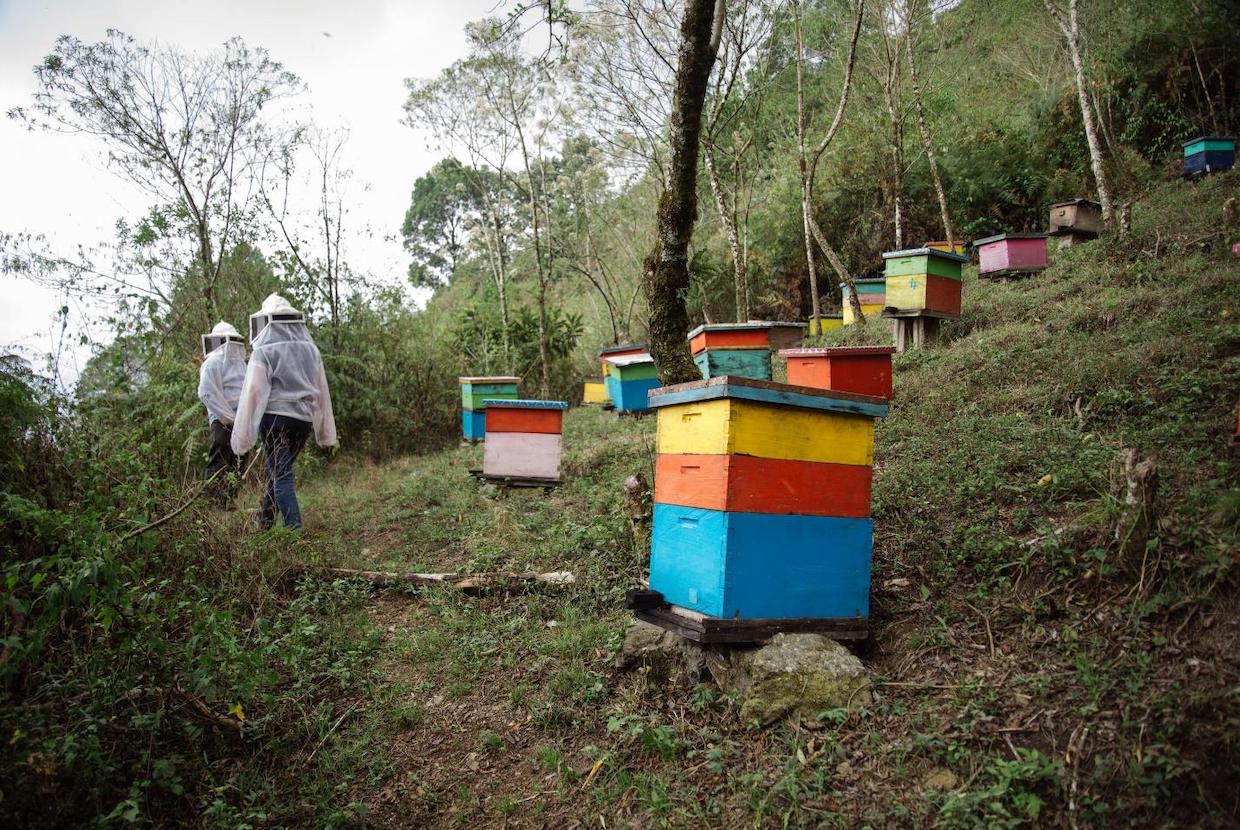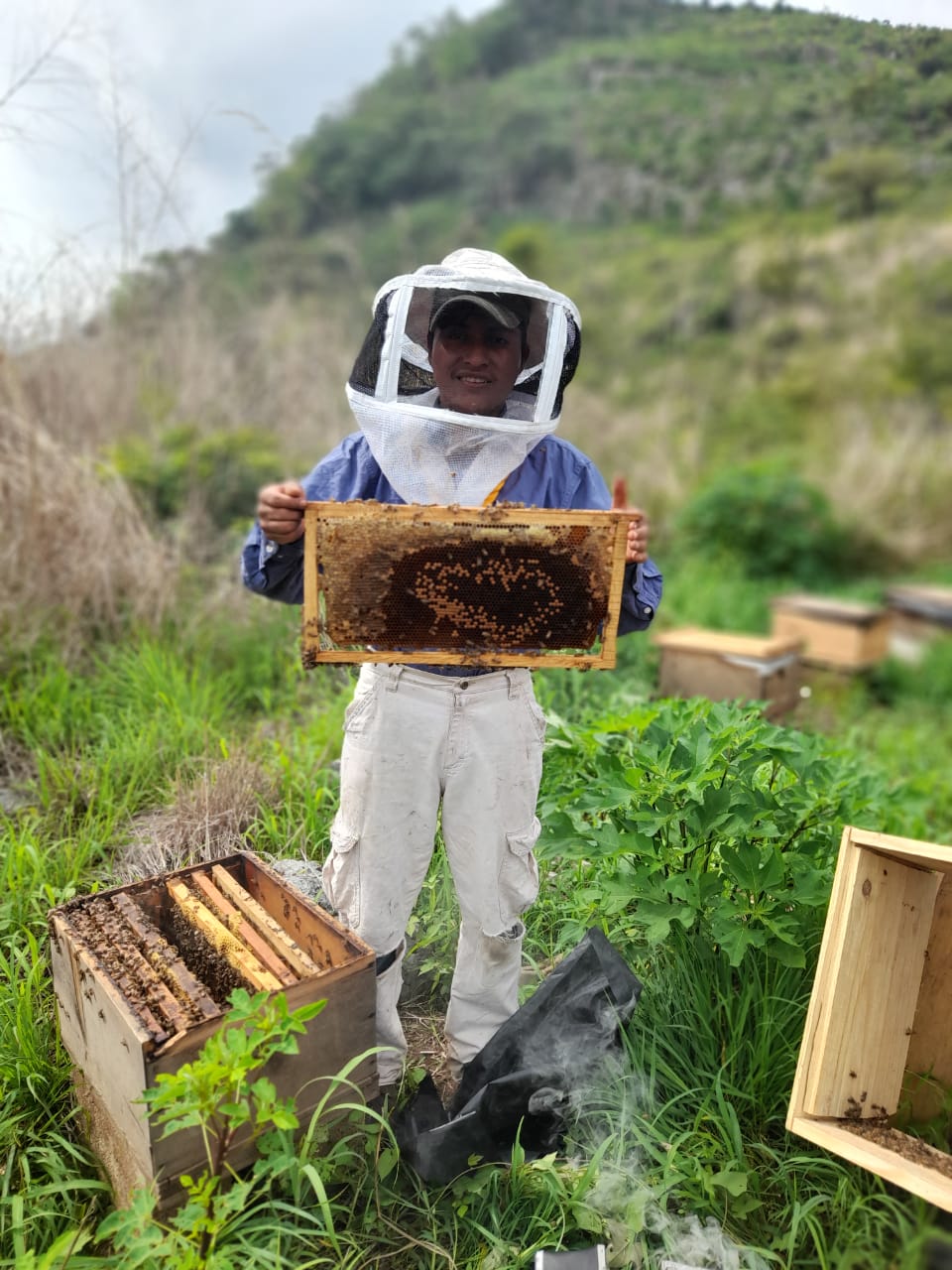If you like coffee, you’d better dang well like bees, too.
Study after study after study has highlighted the symbiotic relationships between bees and coffee ecosystems, particularly as they translate to increased biodiversity, more robust crops and economic opportunities through beekeeping.
This year on Monday, May 20, World Bee Day, the nonprofit Food 4 Farmers is inviting coffee shop operators, roasters or anyone else selling coffees to help promote its own bee-related efforts.
The Vermont-based nonprofit — which provides a range of programming to address food insecurity in coffee-growing communities — is asking drink sellers to donate $1 from each cafe miel or other honey-based drink sold on May 20. Participants can also donate a portion of their online roasted sales, or send a one-time donation, or do whatever they see fit.

A Bubble Bee Espresso drink from Vermont-based Little Seed Coffee Roasters is made with bee pollen, hibiscus flower, honey, espresso, and soda water. Courtesy photo.
All funds raised that day will go towards Food 4 Farmers-led beekeeping projects on coffee farms in Latin America. According to Food 4 Farmers, the beekeeping program has been particularly effective at the ACODIHUE cooperative in Guatemala, where it has proven to:
- Provide additional income for coffee-farming families through honey, beeswax and other products;
- improve coffee crop production locally;
- promote overall biodiversity on and around farms;
- and provide a healthier food source than processed sugar.
“Beekeeping can be a far-reaching solution for food-insecure families in coffee regions with a powerful ripple effect,” Food 4 Farmers said in an announcement shared with DCN. “By diversifying into honey and bee-related products, these families can mitigate the risks associated with coffee farming, such as price fluctuations and climate-related impacts.”
For coffee companies wishing to participate on World Bee Day — to “bee the change,” as it were — find more info on the Food 4 Farmers campaign page.
Comments? Questions? News to share? Contact DCN’s editors here.








Comment